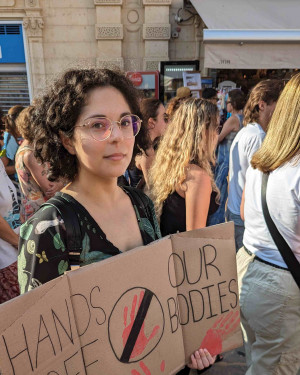Pink Tax
Persons who menstruate spend thousands in their lifetime on menstrual products. This causes purchasing power inequality and also makes the most vulnerable among us feel the impact most.
On average people who menstruate do so for around 40 years and therefore have to buy 10,000 - 17,000 sanitary products
Menstrual products should be free from all educational institutions, public healthcare facilities and hospitals, foodbank, prisons, homeless shelters, and public bathrooms.
A combined offer of pads and tampons in all institutions would be ideal.
Sanitary pads can be used when hygiene conditions are poor, this access should be prioritised. Tampons can pose a risk of toxic shock syndrome if used incorrectly or changed late.
It is easier for young menstruating people to handle sanitary pads.
Menstrual products should be reimbursable. From retail outlets and pharmacies, they should fall on the 0% VAT bracket, and be reimbursable.
Integrate menstrual products into the Pharmacy of Your Choice scheme.
This would first start by integrating first environmentally sustainable options such as menstrual cups, period underwear and reusable pads to encourage persons to use sustainable options.
Once uptake stabilises then the latter menstrual products would be introduced.



